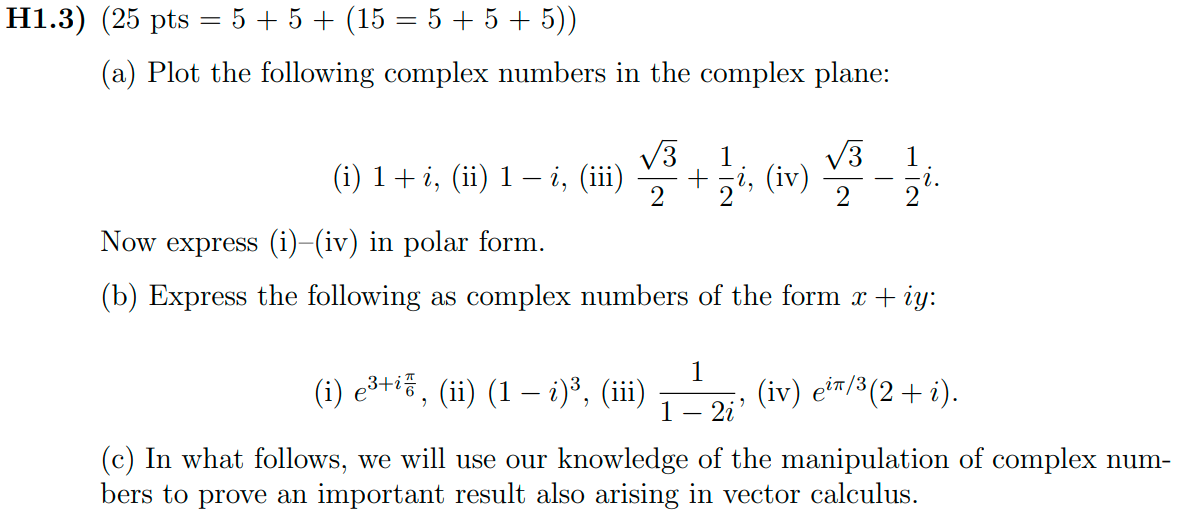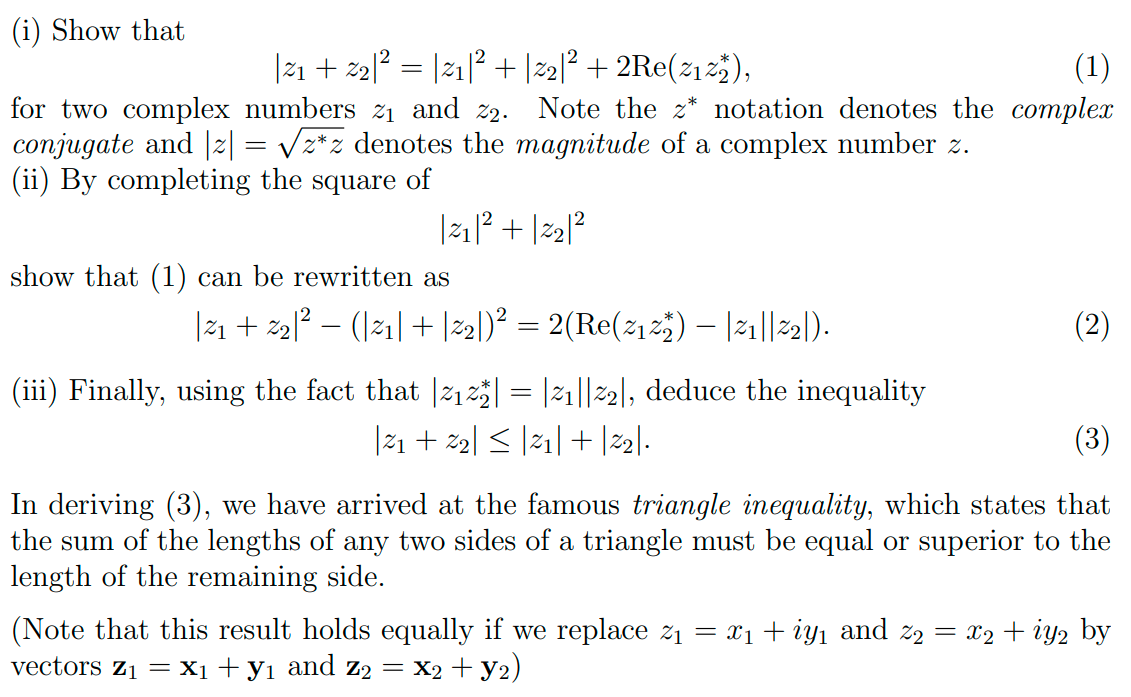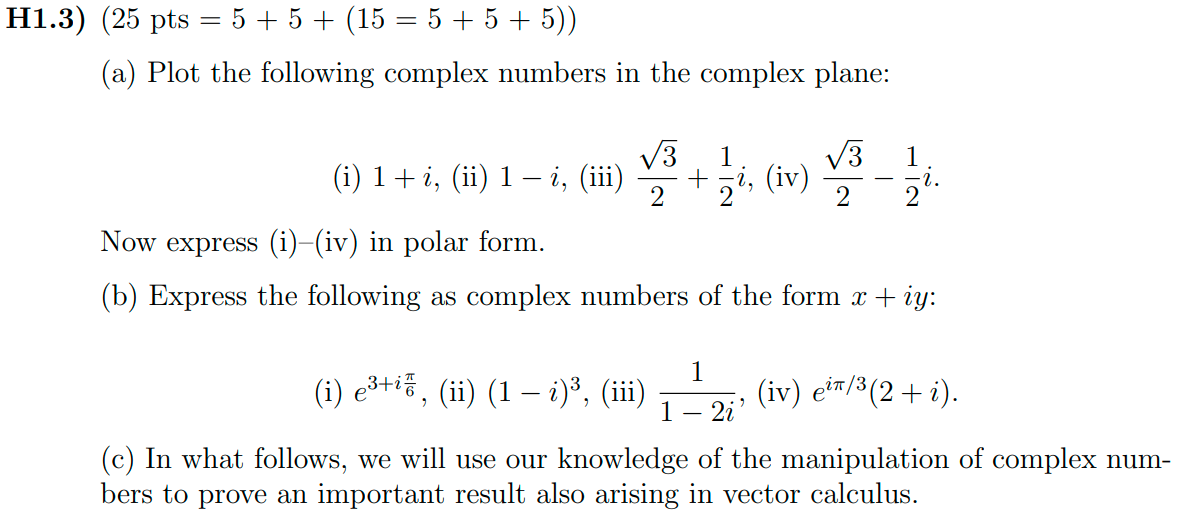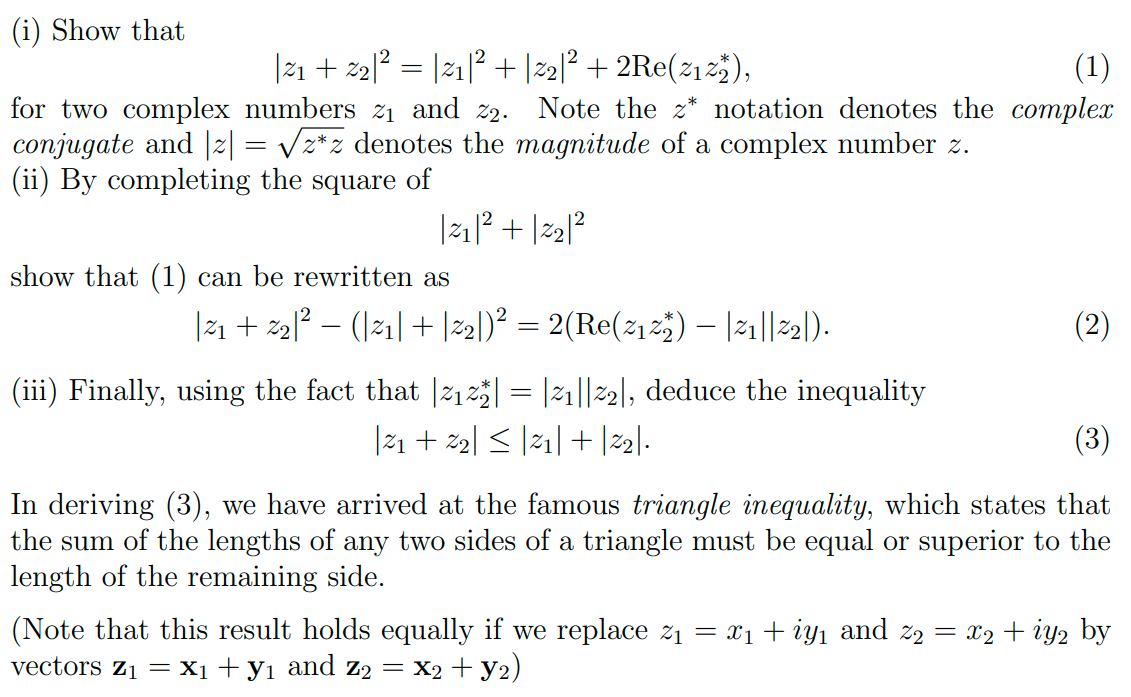Answered step by step
Verified Expert Solution
Question
1 Approved Answer
H1.3) (25pts:5+5+[15:5+5+5)) (a) Plot the following complex numbers in the complex plane: ... ....x/ 1'. J93 1. (1) 1+ 2, (11) 1 z, (111) ?




Step by Step Solution
There are 3 Steps involved in it
Step: 1

Get Instant Access to Expert-Tailored Solutions
See step-by-step solutions with expert insights and AI powered tools for academic success
Step: 2

Step: 3

Ace Your Homework with AI
Get the answers you need in no time with our AI-driven, step-by-step assistance
Get Started


